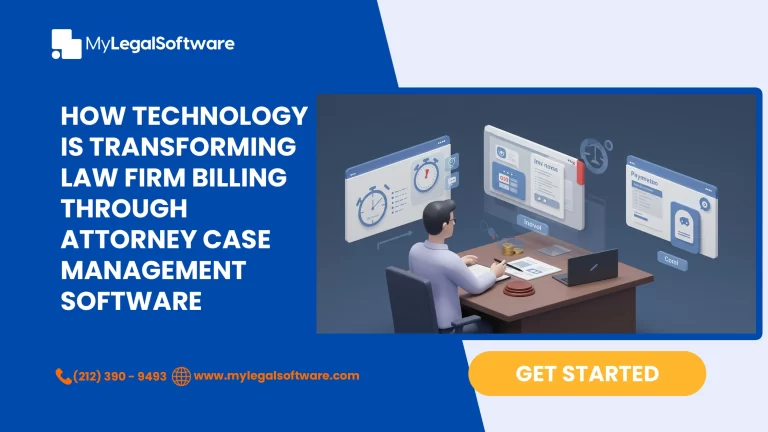Streamlining Bookkeeping Practices for Law Firms
Ever wonder how much easier running a law firm would be without the headache of law firm bookkeeping and financial management? Law firm bookkeeping is a minefield of complexity; even expert lawyers find it daunting to manage their books.
When it comes to traditional bookkeeping methods, financial errors are common, resulting in inaccurate financials and potential legal problems. Moreover, these processes are time-consuming and distract legal professionals from what they should be doing—serving clients and winning cases.
Without the right system in place, managing billing cycles, tracking client expenses, and meeting legal and financial regulations can be overwhelming. However, according to Docu Clipper, 72% of accounting and bookkeeping practices reported increased revenue in the past 12 months. In other words, those who used the proper bookkeeping practices and tools increased their revenue.
In this article, we’ll explore the benefits and methods of efficient bookkeeping for your law firm.

Understanding the Basics of Law Firm Bookkeeping
Bookkeeping has specific requirements for law firms that are typically different from those of other sectors or businesses. These measures improve compliance, accuracy, and financial management in law practice.
Law firms always have to separate client money from the firm’s operating money. This is a crucial ethical aspect to avoid the misuse of clients’ money. Accurately keeping records and ensuring regular reconciliation of these accounts help improve the overall client trust. Other fundamentals of law firm bookkeeping include:
Matter-Based Accounting
Unlike general businesses, law firms must be matter-based. This means all revenues and expenses need to be tracked and accounted for on a per-matter or per-case basis. Each case can have different billing arrangements and expenses, so detailed and precise financial tracking is required to manage client billing and understand the profitability of each matter.
Complex Billing
Legal billing can be complex, and different fee arrangements can be made, such as hourly rates, flat fees, retainers, and contingency fees. Each arrangement requires different ways of tracking time and expenses. Accurate billing is important for client transparency and satisfaction and the firm’s revenue management. Inaccurate or delayed billing can lead to disputes, delayed payments, and financial shortfalls.
Regulatory Compliance
Law firms must comply with strict accounting and financial reporting standards, including rules set by bodies such as the American Bar Association and the IRS. These regulations guide firms in keeping detailed records of all financial transactions, preparing accurate financial statements, and ensuring all financial practices are legal. Noncompliance can result in severe penalties and damage to the firm’s reputation.
Beyond managing trust accounts, law firms still need to comply with the general accounting regulation. In other words, they need to keep detailed records of all transactions, ensure trust account balances with client ledgers, conduct audits, and generally keep the books in check to protect clients’ funds.
Having your law firm’s bookkeeping in check ensures operational efficiency and allows you to maintain compliance. You can streamline your billing processes, have fewer administrative burdens, and finally focus on what truly matters— your legal cases.

Key Components of Effective Law Firm Bookkeeping
In addition to the other fundamental aspects of bookkeeping, these key components help ensure effective law firm bookkeeping.
Client Trust Accounts
Client trust accounts are a unique aspect of law firm bookkeeping. They manage all clients’ money, from deposits to disbursements and payments. Typically, they involve tracking money flow in and out of a trust account, a separate bank account used only for client money.
Client trust accounting has ethical rules and regulations that guide it to ensure that the client’s interests are protected at all times and that the lawyers handle the client’s money efficiently. While still meeting legal and ethical obligations, effective trust accounting helps build a positive reputation and fosters client trust.
Every withdrawal or deposit made on the account needs to be documented. Mismanaging these accounts can lead to severe legal consequences.
Expense Tracking and Management
Expense tracking and management are essential to a law firm’s financial health. Lawyers incur many business expenses while attending to clients’ needs. These expenses include filing fees, court costs, travel, office supplies, client entertainment, and vendor fees.
For small and solo firms, tracking these expenses is crucial for tax and financial management. Categorizing each expense, whether direct (like litigation fees) or indirect (like utility bills), gives you a clear financial picture and accurate client billing.
These expenses must be recorded accurately and billed back to clients where possible. Good expense tracking means the firm gets all out-of-pocket expenses back and is financially accurate. Detailed expense records also help with budgeting and financial planning so you can see where the firm’s money is going.
Automating Bookkeeping with Modern Software
While using the right bookkeeping software, you can seamlessly automate your entire bookkeeping to ensure speed and efficiency. This will ensure optimum efficiency and compliance. A good example of this is Immigration Speed.
Benefits of Software like Immigration Speed
Immigration Speed allows you to manage your entire billing and invoicing through automation. This modern software reduces manual data entry and reconciliation so you can focus on more legal aspects. With this innovation, you can reduce human error in billing reconciliation and keep your financial records accurate.
Additionally, you can automatically generate financial reports through a single click. This way, you can make informed financial decisions and have clearer client communication. Here are some benefits of using Immigration Speed for your law firm’s bookkeeping.
Time Tracking
With Immigration Speed, you can capture every minute of your firm’s billable hours, improving profitability. Your law firm can enjoy easy and effective time-tracking features, ensuring better billing and invoicing.
Trust Accounting
The software has improved features that allow you to generate invoices and comply with regulations. You can ensure your law firm meets client trust management regulations and runs reports.
Moreover, Immigration Speed does much more than handle your billing, invoicing, and bookkeeping. It offers a streamlined and secure client portal, ensuring seamless communication. Additionally, it offers automation, client case management, reminders, task management, and more to ensure your entire law firm is productive.
Integration with Other Law Firm Management Tools
Immigration Speed integrates with other law firm management and communication tools, including Quickbooks, Zoom, Google Meet, and more. As a law firm or attorney, you can:
- Synchronize financial data, case details, and client accounts
- Eradicate duplicate data entry
- Streamline your workflows to ensure efficiency
Access reports to see a better view of your service and clients.
With Immigration Speed, your law firm can automate and optimize its practices, experience accurate bookkeeping, and stay compliant. Take advantage of the free trial offer. Try Immigration Speed for free
Best Practices for Law Firm Bookkeeping
Keeping your finances spot-on is key to transparency, accuracy, and compliance. Here are some practical tips to help you do that:
Audits and Compliance Checks
Conduct internal audits and compliance checks regularly to review your financials and ensure compliance with the rules. Taking this proactive step allows you to identify possible issues early and keep your firm compliant.
Effective Use of Technology in Bookkeeping
Automated systems give you real-time visibility into your firm’s finances. They produce reports and analytics instantly, allowing you to make smarter decisions and adapt to change. Integrating these software tools with other key systems—like case management and client billing platforms—means your firm is connected and more efficient overall.
Software like Immigration Speed can automate invoicing, expense tracking, and trust accounts. It saves time and reduces human error, ensuring consistent and accurate finances.
Choosing the Right Bookkeeping Software for Your Law Firm
When choosing bookkeeping software for your law firm, you need to assess several factors to ensure it meets your needs and increases productivity. Here are the key points to focus on:
1. Legal Features
Look for software that has legal features such as trust accounting, matter-based billing, expense categorization for client reimbursement, and compliance with legal accounting standards. These features will ensure the software meets the needs of law firms.
Ensure the software integrates with your firm’s key tools, such as case management, client billing, and payroll systems. Integration means data synchronization and less duplication of data entry, streamlining workflows.
2. Compliance and Security
Prioritise software that complies with the legal and regulatory requirements of your jurisdiction. It should have robust security to protect client data, including encryption, access controls, and regular security updates.
3. Automation and Productivity
Choose software that automates invoicing, time tracking, expense management, and financial reporting. Automation reduces manual errors, saves time, and improves overall accuracy in financial record keeping.
4. Ease of Use
Choose software with an easy-to-use interface that your team can use effectively. A good interface increases productivity and reduces the learning curve for new users.
5. Scalability and Customisation
Consider your firm’s growth and choose software to grow with your business. It should have customization options to adapt workflows and reporting to your firm’s changing needs.
6. Support and Training
Assess the level of support and training provided by the software vendor. Access to good support and training resources means your team can get the most out of the software and troubleshoot issues.
7. Cost and Value
Compare the pricing plans and consider the value of each software option in relation to its features, scalability, and support. Look for transparent pricing with no hidden fees and see if the software offers a free trial or demo to try before you make any purchase.
Conclusion
Simplifying bookkeeping is a game changer for law firms in terms of efficiency, accuracy, and compliance. By using software designed for their specific needs, such as Immigration Speed, firms can automate tasks like invoicing and expense tracking. Automation reduces errors and saves time for legal professionals so they can focus on client service and strategy.
Firms need to review their current bookkeeping regularly and consider upgrading to more advanced solutions with integration, user-friendly interfaces, and robust security. These features streamline and give real-time visibility into financials so they can make informed decisions and be proactive with compliance.
FAQ on law firm bookkeeping
Here are some frequently asked questions.
1. What are the best practices for bookkeeping in a law firm?
Best practices in bookkeeping are key to accuracy and efficiency in a law firm’s financial management. Regular internal audits to review financial records and compliance with legal and regulatory requirements. Software like Immigration Speed can also help streamline processes by automating invoicing and expense tracking, reducing errors, and increasing overall efficiency.
2. How should a law firm manage its client trust accounts?
Managing client trust accounts with precision is key to trust and compliance. Law firms must stick to legal and ethical requirements for trust accounting. It means separate trust bank accounts, accurate tracking of deposits and withdrawals, and regular reconciliation of trust accounts. Through robust processes and using technology for trust, accounting firms can be transparent and accountable for client funds.
3. Can bookkeeping software help improve the efficiency of law firms?
Yes, bookkeeping software designed for law firms like Immigration Speed can help. This software automates repetitive financial tasks, is accurate, and saves time for legal professionals.
4. What features should law firms look for in bookkeeping software?
Law firms should look for features that suit their needs when choosing bookkeeping software. Key considerations are integration with other software used in the firm, user-friendly interfaces for staff, comprehensive reporting for financial analysis, and robust security to protect client data. Customizable settings and scalability are also bonuses to accommodate the firm’s growth and changing operational requirements.
5. How often should a law firm do a financial audit?
The frequency of the financial audit should depend on the size and complexity of the firm and regulatory requirements. As a general rule of thumb, law firms should conduct internal financial audits at least once a year. Larger firms or those with large transactions may require more frequent audits. Regular audits will help identify potential errors early and ensure financial integrity and compliance with regulatory bodies.
6. What are the common bookkeeping challenges in law firms, and how can they be overcome?
Common bookkeeping challenges in law firms include managing multiple client accounts, accurately tracking billable hours, and complying with complex legal and accounting requirements. Firms can overcome these challenges using accounting software to automate tasks and keep records. Clear policies and procedures, ongoing staff training, and integrated software can help streamline processes and minimize bookkeeping challenges.









